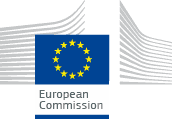 The European Commission presented a new strategy to support coastal and maritime tourism in Europe. Recognising the sector's potential for sustainable growth and job creation, the strategy outlines 14 EU actions to help coastal regions and businesses tackle the challenges they face and strengthen the sector's position as a key driver of Europe's blue economy. These concrete actions are accompanied by a break-down of the tasks that Member States, Regions and industry stakeholders can undertake to complement the EU actions.
The European Commission presented a new strategy to support coastal and maritime tourism in Europe. Recognising the sector's potential for sustainable growth and job creation, the strategy outlines 14 EU actions to help coastal regions and businesses tackle the challenges they face and strengthen the sector's position as a key driver of Europe's blue economy. These concrete actions are accompanied by a break-down of the tasks that Member States, Regions and industry stakeholders can undertake to complement the EU actions.
The proposed actions include facilitating closer cooperation and dialogue across Europe between all coastal tourism stakeholders, public-private partnerships, promoting skills and innovation, promoting ecotourism, and creating an online guide to funding opportunities to help drive investment. Member States, regional authorities and the industry will be central to the design and implementation of the actions.
European Commissioner for Maritime Affairs and Fisheries, Maria Damanaki, said: "Coastal and maritime tourism was identified in our 'Blue Growth' strategy as one of the key drivers for creating growth and new jobs, particularly in our coastal areas which often suffer from high unemployment. As the largest maritime economic activity and the economic backbone of many of our coastal regions it is our responsibility to help this sector develop and prosper."
Vice-President of the European Commission and European Commissioner for Industry, Entrepreneurship and Tourism, Antonio Tajani said: “I consider Tourism a fundamental economic leverage for growth in Europe, around which to build dedicated, consistent and integrated policies. A targeted strategy on coastal and maritime tourism highlights the potential of this important sector of tourism and the role it can play to fight unemployment, in particular among young people".
Despite its undoubted potential, the sector faces a number of challenges which the strategy seeks to address. These include gaps in data and knowledge, volatile demand, high seasonality, a lack of adequate skills and innovation, and difficulties accessing financing. The actions in the strategy unveiled today focus on helping the sector overcome these obstacles and create an environment which will attract investment. At the same time, it will make the sector's activities sustainable, preserve natural and cultural heritage, reap significant economic and environmental benefits, and help make the sector more competitive globally.
Background
Coastal and maritime tourism includes beach-based and nautical, cruising or boating tourism and is an essential driver for the economy of many coastal regions and islands in Europe.
It employs almost 3.2 million people, generating a total of € 183 billion in gross value added for the EU economy, representing over one third of the maritime economy gross product. Tourism is a growing business: in 2013, the number of nights spent in hotel or similar establishments reached a peak of 2.6 billion nights in the EU28, up by 1.6% from 20121.
Unlocking the potential of coasts and seas would contribute to the wealth and well-being of coastal regions and the EU's economy in general, while ensuring a sustainable and long-term development of all tourism-related activities.
Today's strategy will be discussed at a Conference organised with the Greek Presidency on 10 March in Athens, which will bring together authorities and businesses and other stakeholders. Implementation of the concrete actions will follow in the coming months.
For more information
• Coastal tourism webpage on Directorate General Maritime Affairs website: http://ec.europa.eu/maritimeaffairs/policy/coastal_tourism/index_en.htm
• Tourism webpage on Directorate General Enterprises and Industry website: http://ec.europa.eu/enterprise/sectors/tourism/index_en.htm
• MEMO/14/120
Contacts :
Carlo Corazza (+32 2 295 17 52) Sara Tironi (+32 2 299 04 03)
Oliver Drewes (+32 2 299 24 21) Lone Mikkelsen (+32 2 296 05 67)